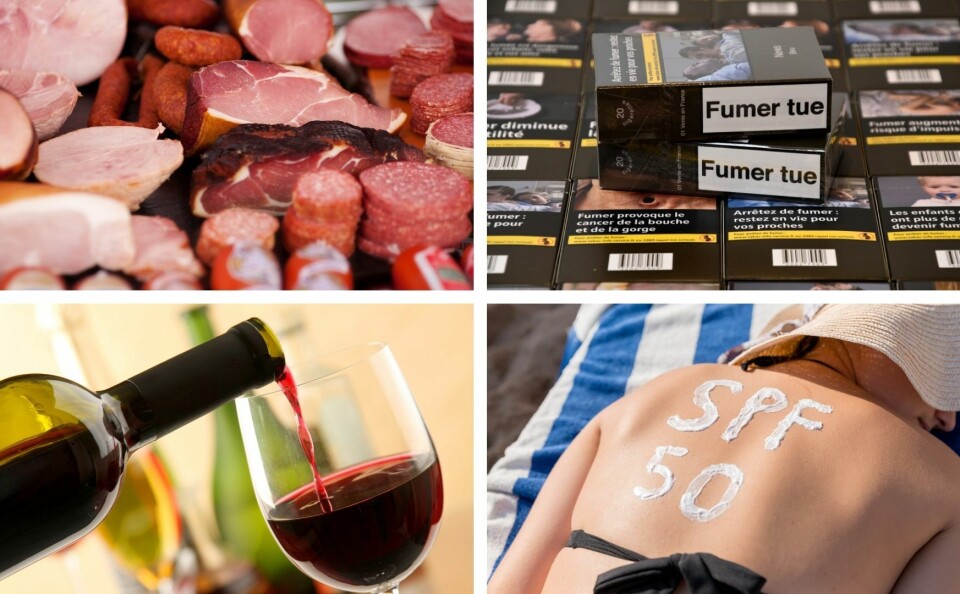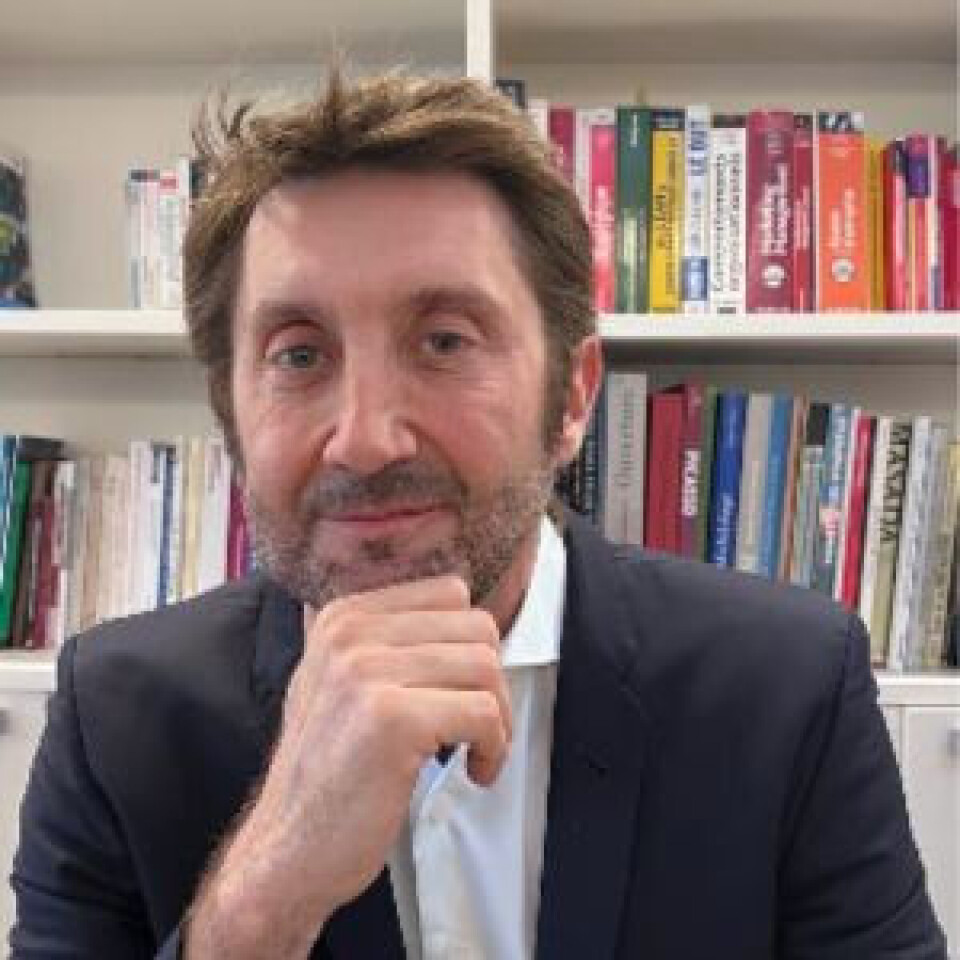-
How many Americans live in Paris - and where else are they choosing in France?
Over a quarter of all US nationals in France live in the capital city
-
Price rises for Netflix in France
The Standard (with ads) and Premium packages are increasing by €24 a year
-
Leclerc supermarkets to sell car fuel at cost price for Easter
The initiative will apply to diesel, petrol, and LPG
Cancer expert alarmed by ignorance of risk factors in France
As cancer rates rise a survey shows confusion around smoking, alcohol and hereditary risks

The new version of a cancer ‘barometer’ compiled to monitor attitudes to cancer and awareness of risk factors in France shows an alarming lack of knowledge, says a leading expert.
Every five years since 2005, around 5,000 people are polled by the Institut National du Cancer in collaboration with national health authority Santé Publique France.
The results of the most recent survey, delayed until 2021 because of Covid, have now been published.
Risk factors explored included UV exposure from sunlight/sunbeds, nutrition, tobacco, e-cigarettes, alcohol, HPV vaccinations, and getting regularly tested.
Some 3.8 million people in France are living with or have had cancer, and around 382,000 more adults are diagnosed every year.
Although mortality rates have crept down, the number of cases continues to rise, despite more than 40% of cancers being preventable.
Read more: How close is France to finding a vaccine to treat cancer?
Misunderstand cancer risks
Jérôme Foucaud, head of the research department at the Institut National du Cancer, said: “The first thing to say is that people can reduce their risk of getting cancer.
“But in order to do so, they have to know what behaviours reduce risk most, so for the first time we asked participants the open-ended question: ‘What are the principal risk factors for getting cancer?’.”

Photo: Jérôme Foucaud, head of the research department at the Institut National du Cancer; Credit: Jérôme Foucaud
The answers received were alarmingly inaccurate and only 69.2% of respondents agreed that they could reduce their cancer risk.
“The behaviour that most increases the risk of getting cancer is definitely smoking, second is alcohol, third is unhealthy eating and lack of exercise,” said Mr Foucaud.
“People cited pollution as one of the top seven risk factors when, in fact, it is much further down the list.
“Also, 80% of respondents thought psychological stress can cause cancer, although there is not a shred of evidence to support that.”
Hereditary risks over-estimated
Using an agree/disagree slider, other questions were asked about a wide range of cancer risks.
“An interesting result was that people over-estimated hereditary risks, thinking it was the third-largest risk factor, but only 5-10% of cancers are inherited,” said Mr Foucaud.
“I think the idea that cancer is inherited has grown because doctors ask if there is cancer in the family.”
Dr Foucaud suggested that people might exaggerate the risks from inherited genetics, stress or pollution to avoid taking responsibility for unhealthy lifestyle choices, which are big contributing factors.
Any alcohol amount increases cancer risk
“When it comes to drinking, any alcohol at all increases the risk of getting cancer,” he said. “The idea that a glass of red wine can protect you from cancer is completely false, but almost a quarter (23.5%) of respondents believe it, despite saying they feel well informed about alcohol.”
The barometer showed that eight out of 10 French people thought the main risk of drinking is having a car accident, rather than increasing the risk of getting cancer.
Some 54% of respondents thought alcohol increased cancer risk only when consumed excessively.
25% of French people smoke daily
There was also confusion about the extent to which smoking can increase a person’s chances of getting cancer.
Around 25% of French people smoke daily. As well as lung cancer, it can cause cancers of the mouth, throat and breast.
Read more: French attitudes to smoking: Six of the latest trends
“Although 70% of smokers fear getting cancer one day, people minimise the risk to themselves: if they smoke eight cigarettes a day, they will say the risk begins at 12 a day, for example.”
Mr Foucaud said smokers wrongly believe the risks begin at nine or more cigarettes per day, and/or smoking for more than 13.4 years. “There is no safe level of smoking,” he insisted.
In addition, 54.8% of respondents wrongly believe exercise helps ‘purify the lungs’ and only 22.5% of smokers had discussed it with a healthcare professional in the last 12 months.
Good awareness of processed meat risk
More encouraging were answers relating to nutrition, with 73.9% of respondents recognising that processed meat increases risk, and 62.9% that red meat does. Some 62.8% know that eating fruit and vegetables reduces risk.
Awareness by gender, income and education
“In the past, there was a difference between women and men, but that doesn’t exist any more, and the awareness is much more even across education levels,” said Mr Foucaud.
However, the barometer found that people with higher education levels tend to identify the risks more accurately.
When it comes to getting tested for cancer, for example, people in lower income brackets tend to get tested less often.
Across the board, 68.8% of women aged 50-74 say their mammograms are up to date, but only 43% of people in the same age group claim that of their colorectal screening.
First results on e-cigarettes
The barometer also asked about electronic cigarettes for the first time.
“We wanted to find out if using them was a way out of smoking, or a gateway to becoming a smoker,” said Mr Foucaud. “This is obviously important as we try to encourage people to give up.”
Some 35% of respondents aged 15-75 and 56.8% of those aged 15-24 said they had tried e-cigarettes at least once, 79.4% said they cause cancer, and 52.9% think they are more or just as harmful as tobacco, although there is no scientific evidence for this so far.
Mr Foucaud said results of the barometer would be spread “as widely as possible” and used in collaboration with public health authorities to “re-think our communication strategies to raise awareness of cancer risk factors.”
Free routine screening is available
In France, there are routine screening campaigns for four of the most common types of cancer. These are offered free to certain age groups.
Breast cancer (cancer du sein)
Those aged between 50 and 74 should receive a letter offering a free screening.
Pick from a list of radiologists on the list or choose your own.
The screening consists of a clinical examination, followed by a mammogram. If you are aged 74 or over, free screening is offered only after consultation with your GP.
Bowel cancer (cancer colorectal)
Every two years, eligible adults aged 50-74 will receive a letter from the national health organisation Assurance Maladie inviting them to order a free test online.
The test comes with detailed instructions and looks for blood hidden in the faeces. If detected, a colonoscopy will be scheduled.
Cervical cancer (cancer du col de l’utérus)
A free smear test (frottis vaginal) is available for women every three years between the ages of 25 and 29, after two normal tests one year apart.
They are offered every five years between the ages of 30 and 65.
Prostate cancer (cancer de la prostate)
There is no national prostate cancer screening programme for men in France. Your GP might recommend it if you are over 50.
They will begin with a rectal examination and then refer you for a blood test to measure the amount of prostate-specific antigen (PSA) produced by the cells in the prostate gland.
Related articles
‘Stark health warnings on every wine bottle in France is absurd’
French teenagers are less interested in alcohol, cannabis and tobacco
How do French healthcare costs change for long-term illnesses?
























